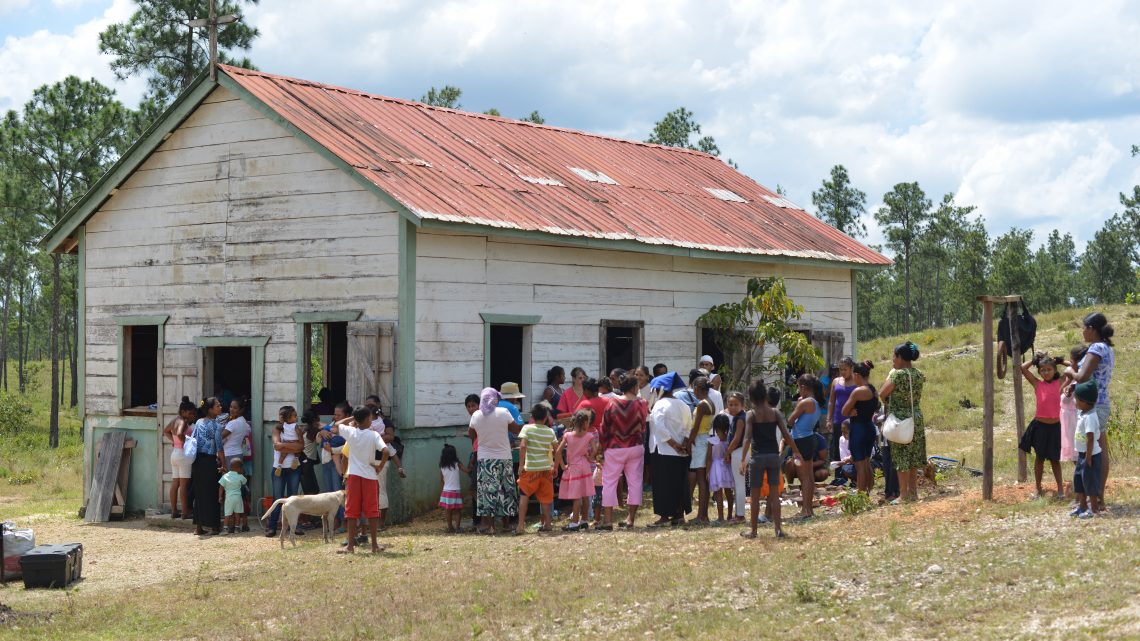By the time the bus pulled up to the hospital in Puerto Cabezas, it was already 1:00 am. After five jolting hours on the worst roads imaginable—against all odds—the twins were still alive, their little chests fluttering like hummingbirds. The mother and father rushed into the emergency room, each clutching the body of a malnourished and dehydrated one month old. Behind them came the anxious tide of IRR and nursing students who had administered intravenous fluids and medication to the infants back at the rural outpost far removed from advanced medical treatment centers. By dawn the infant twins were stable. Three days later they had regained weight and color and were both crying loudly, their lungs strong.
“It was a miracle they survived,” said senior IRR-paramedic student Brandon Peters. “That experience changed me as a caregiver.”
Life-changing experiences come in many forms to international rescue and relief students: memorable lectures, provocative discussions, compelling textbooks. But few classroom experiences can compare with the intense off-campus education IRR provides.
“In class, students learn all the pieces,” said director Rick Young. “We give them opportunities in the real world to put those pieces together.”
One of the most significant opportunities, and the one frequently cited by IRR graduates as their seminal bachelor’s degree experience, is the semester in Nicaragua. For four months, students divide their time between working with local ambulance and firefighter crews, operating rural medical clinics, and learning to survive adverse conditions in the jungle and the open ocean, among countless other experiences in the disciplines of medicine, development, rescue and survival.
“You can learn only so much in a classroom,” said Peters. “There’s another level to be reached when you participate in something as big as saving a life.”
A group of students boarded the bus to take the infants to the hospital when one of the babies quit responding, Peters recalled. “I lost my ability to control my emotions because he wasn’t going to make it.”
Eventually they were able to start intravenous fluids and Peters gleaned a valuable lesson. “I’m learning to separate my emotions from my caregiving,” he said. “My responsibility is to support the people who need care.”
Few programs in the world provide students the raw exposure to caregiving that the Nicaragua trip does for IRR students. It offers demanding and up close opportunities in a range of disciplines set against the poverty and unfamiliarity of a third-world country—opportunities that many IRR graduates will continue to seek professionally.
“Anyone can travel,” Peters said. “What makes IRR special is that it combines travel with specific professional direction.”
Off-campus learning in Lincoln
Not all off-campus opportunities require passports and immunizations. Locally, there’s the Red Cross Club, made up of 52 members—mostly IRR, nursing and social work students.
For one week every month, the club takes the lead responding to all disasters in Nebraska. Students sign up for shifts prepared to respond at all hours to tornados, flooding or house fires. “We intentionally partnered with the Red Cross to afford our students these practical experiences,” said Young. “They get to see how the real world operates.”
Peters recalled responding to a house fire late at night. The students distributed cold water and Gatorade to the exhausted firefighters emerging from the house and then met with the victims, a young family. The students gave food, clothes, and money to the recently homeless family, and received smiles and tears of gratitude in return.
“Just to be there and support people is a rewarding experience,” Peters said.
–Michael Rohm graduated from Union in 2014. He is a freelance writer who works from his home in Oregon.










